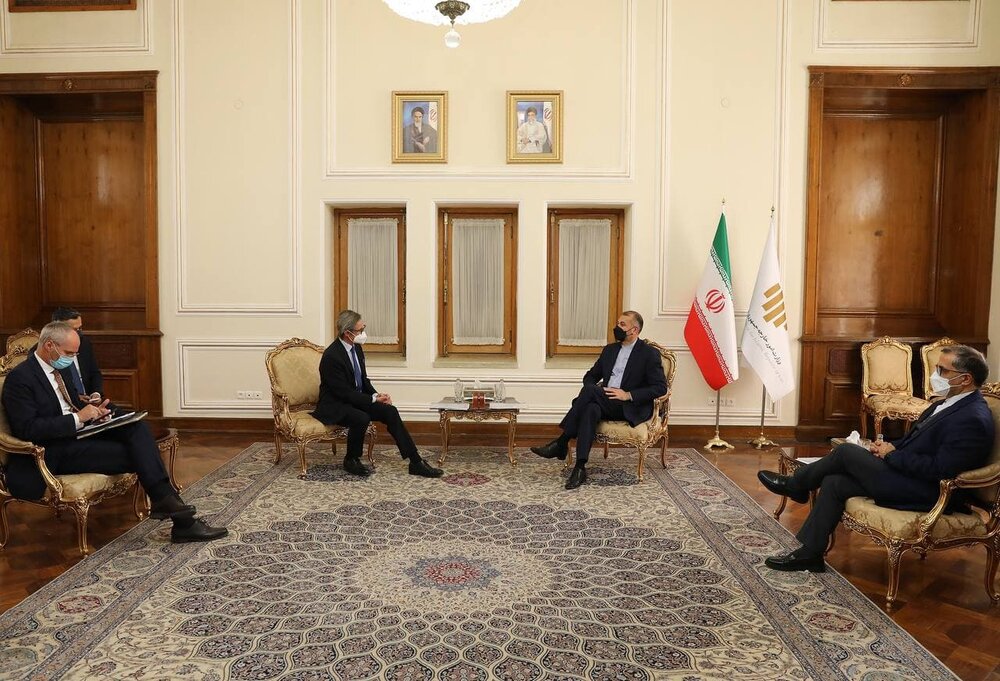Top Iranian diplomats discuss JCPOA with Austrian official

TEHRAN — Secretary-General of the Austrian Ministry of Foreign Affairs Peter Launsky, who was in Tehran for the fifth round of political talks with Iran, met with Foreign Minister Hossein Amir Abdollahian as well as Deputy Foreign Minister for Political Affairs Ali Bagheri.
In his first meeting, Abdollahian called the ties between the Islamic Republic and Austria age-old and said, “We attach great importance to these relations.”
Abdollahian expressed hope for increased economic and trade cooperation between the two countries. He also appreciated the donation of vaccine by Austria and called for more cooperation with Vienna on the Covid pandemic and vaccine.
The Iranian foreign minister called on the European Union to adopt a more responsible approach to the rights of displaced Afghans and condemned the terrorist attacks in recent weeks in Afghanistan. The Iranian foreign minister also described the rise of ISIS and Takfiri terror groups in Afghanistan as “dangerous.”
For his part, Launsky praised the friendly relations between his country and Iran and expressed hope that the Iran nuclear deal will be revived with the cooperation of all parties.
He also condemned the recent terrorist acts in Afghanistan, noting that Iran and Austria share common concerns about ISIS terrorists.
He also stressed Austria's support for meetings of Afghanistan's neighbors to resolve the country's problems.
Launsky and Baqeri discuss JCPOA developments
The fifth round of political talks between Iran and Austria was held on Saturday in Tehran. The meeting was chaired by Bagheri and Launsky.
Bagheri referred to the long history of relations between Tehran and Vienna, saying that it is a valuable asset for bilateral ties.
He also spoke of regional issues. He touched on the latest developments in Yemen and Afghanistan, as well as Iran’s efforts to help reduce the problems in those countries and said the Yemeni people have been under the most severe military attacks for nearly seven years and, from a humanitarian point of view, European countries are expected to take serious action to put an end to the ongoing catastrophes in the country.
Elsewhere, he underlined Tehran’s compliance with its commitments under the Iran nuclear deal.
The deputy foreign minister added that Europe did not withdraw from the agreement after the withdrawal of the United States, but did not take effective and practical action within the framework of its commitments under the JCPOA.
For his turn, Launsky underscored that mutual respect and understanding have institutionalized the will of the two nations to cooperate with each other.
The Austrian diplomat also pointed to the significant potential in economic relations between Iran and Austria and underlined the willingness of Austrian companies to be present in the Iranian market.
He then turned to the situation in Afghanistan. Launsky emphasized that Austria understands Iran’s concerns and appreciated the Islamic Republic's hosting of Afghan refugees.
Regarding Yemen, he said Austria is trying to alleviate the suffering of the Yemeni people as much as possible by providing them with humanitarian aid.
SA/PA
